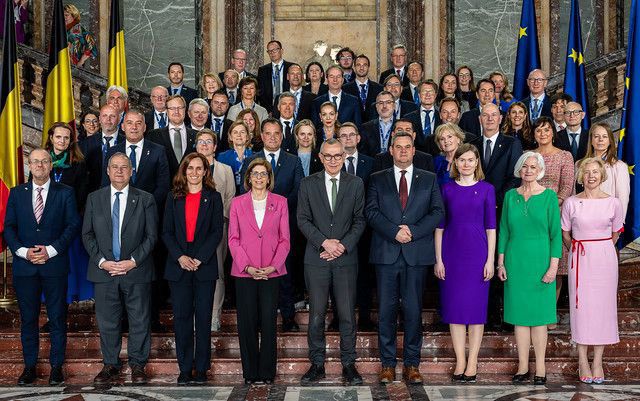Critical Medicines Alliance: A positive collaboration to enhance medicines supply chain security and ensure all Europeans have access to medicines
The Critical Medicines Alliance is a positive step towards addressing medicines shortages in Europe by protecting and enhancing the security of global supply chains and strengthening the region’s manufacturing capabilities. EFPIA and its member companies welcome the opportunity to participate.
The research based pharmaceutical industry is proud of its resilient supply chains, which held up remarkably well despite severe pressure and high global demand for medicines during the Covid-19 pandemic.
Moreover, the speed at which medicines and vaccines were developed and scaled up to meet patient need around the world is a testament to the strength of the biopharmaceutical ecosystem – with Europe at the forefront. Any initiative to build on this eco-system and improve patient care for all Europeans is very much welcomed by our industry.
The reasons for shortages are multifactorial and complex, with nuances between different actors in our sector and we look forward to working in partnership to address these challenges over the coming years.
Specifically, EFPIA will work within the Alliance to help build resilience through a number of recommendations such as:
- Boost EU leadership in technologies of the future, such as advanced therapies, MRNA, and bioproduction.
- Accelerate digitalisation, to support greener manufacturing, greater regulatory capacity, and efficient use of the skilled workforce.
- Promote sustainable procurement conditions. For multi-source critical medicines, if price is used as the only parameter for purchasing, there is no incentive for manufacturers to invest in transition and resilience.
Speaking after the launch of the Alliance EFPIA President, and CEO of Novo Nordisk, Lars Fruergaard Jørgensen said.
“Europeans should be able to get hold of the medicines they need - this is our shared goal.
Industry leaders at the Critical Medicines Alliance launch today recognised the real challenges that some patients in Europe face.
Looking ahead, to secure supply in Europe in the long term, we must remember that the medicines under development today will be the critical medicines of the future. When Europe is seeking open strategic autonomy, it needs to be a competitive place to research, develop and manufacture medicines, from the most innovative to the most familiar.”
